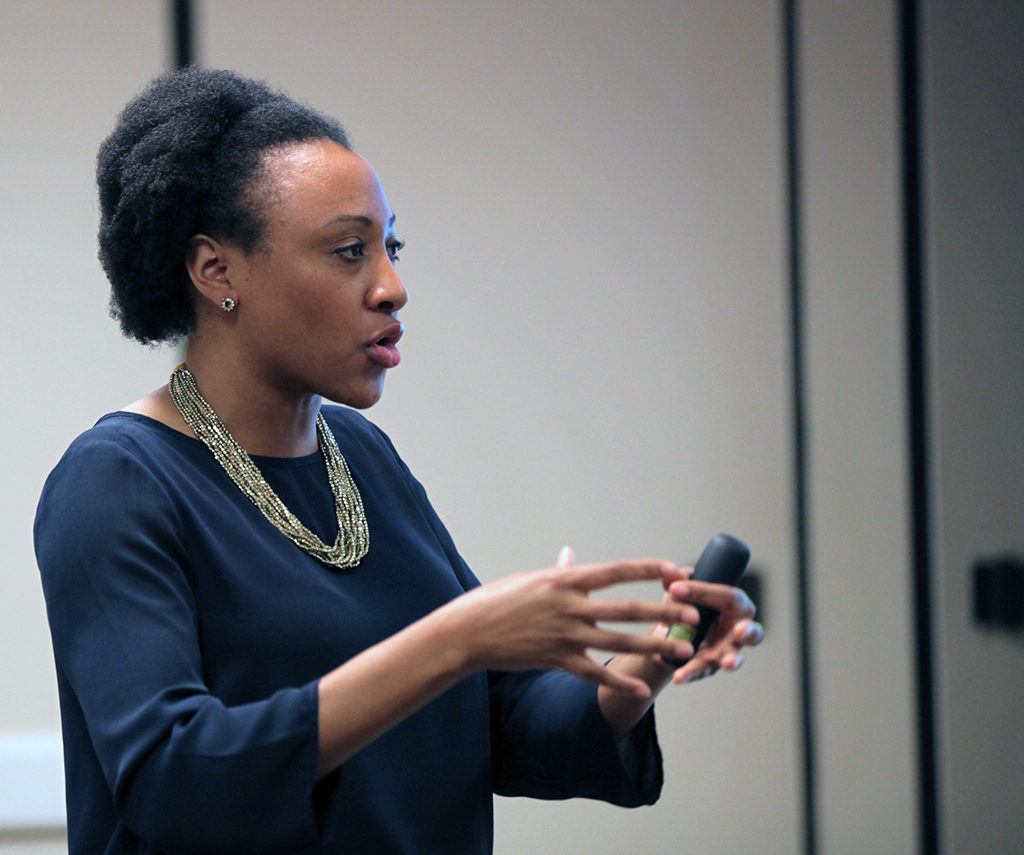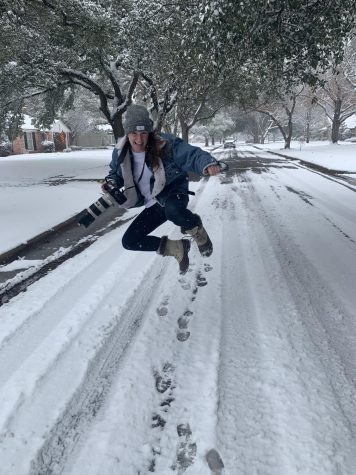
Students gathered in the Clark Student Center Comanche room as they waited for Syreeta Greene’s speech about the Dakota Access Pipeline on Jan. 26. Greene, director of equity, inclusion, and multicultural affairs, created the presentation to bring light to lesser known problems in the construction of the pipeline. Her speech titled “Whose Water is It?” was a part of a series of events from Jan. 23 – 27 called Human Rights Week. This series aimed to bring awareness to social issues primarily focused around water and its effect on the world.
During the presentation, Greene also allowed room for entertainment and intellectual conversation within the audience on matters surrounding the Dakota Access Pipeline. These topics included issues dealing with treaties with the Native Americans, oil accidents and spill rates, as well as the importance of water and the rights it holds for residents surrounding the water. Students and professors alike participated in this forum and Claudia Montoya, associate professor of Spanish, was one of these contributors.
“The presentation showed how large the history of oil is within the territory itself,” Montoya said. “It brought the importance of water over oil as well as the geography of the country and how many states this pipeline actually touches.”
Montoya was in favor with what the presentation brought to the room – a space for people to exchange ideas while also gaining new insight on issues revolving around human rights. While she brought her own thoughts to the forum, she also pointed out that she tries to make her students see the importance of climate and human rights issues.
“It’s about lack of education and being more aware. Awareness should not only come from the talk – you have to also make action and ask questions,” she said. “If we don’t speak up, nothing will happen.”
Greene expressed similar views, not only giving ways for students and faculty to get involved locally, but also providing convenience for people to make a change, such as small donations and signing petitions. She also shared ways for people to make action in bigger ways. These examples included encouraging her audience to contact the Senate Committee on Affairs, writing letters to their bank who may be associated with funding the pipeline project, and contacting their senator.
“I think it’s important for people to understand what these issues are, because if these things can happen to a community, what’s the likelihood that it will happen to our own?” Greene said in her presentation. “My question is why aren’t more people concerned? This will affect the resources of millions of Americans, not just those within the community.”
Damian Desilva, economics senior, attended the presentation and provided active conversation during the discussion. He said that while he doesn’t consider himself very involved, he still saw the issue of fighting over the continuation of the construction a big part of what America deems a priority.
“The protests speak volumes about human rights. America is supposed to be the symbol of liberty and freedom and being able to change your own destiny, but it seems to be mitigated by race, political connections, class, and lack of resources,” Desilva said.
While the construction of the Dakota Access Pipeline will affect Native Americans and their communities, Greene’s speech continued to bring awareness to issues that are related to the natives’ rights.
“What really are all the issues? We are in the habit of consuming and wasting. And with social media, we are really able to connect the dots and ask the important questions like, what do banking institutions benefit from this pipeline?” Greene said. “It really is just educating the people and giving it time.”















